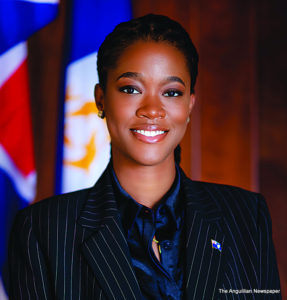
Afro-Anguillian students will no longer be penalised by their schools for wearing natural protective hairstyles like dreadlocks, braids and cornrows as the Ministry of Education has updated the Albena Lake-Hodge Comprehensive School National Code of Discipline and Dress.
“When I was first elected to office, a young man turned to me and asked, how can the Head of the Ministry of Education wear locs, but the students in the system can’t? The truth is that children are watching. They’ve always been watching and they are now finding their voices to express what they believe,” Kentish-Rogers stated on Instagram.
“Everything takes time. At this time, we have been able to change the National Code of Discipline and Dress to reflect the changing attitudes towards hair – globally and within our community. This change will outpace most Caribbean territories who still require permission for wearing locs to school.”
The new hair code states:
• Braids, locs, twists, weaves, wigs, cornrows and other extensions may be worn by girls, but if they pass shoulder length must be tied up.
• Locs, twists, afros, cornrows are permitted for boys.
• Spiky hairstyles are not allowed.
• Hairstyles that distract or obstruct the normal view of others will not be permitted.
• Students must always keep their hair clean.
• Hair colour should be one solid colour, your natural hair colour.
Conversations on colonial era hair rules have been ongoing across the Caribbean as students, particularly those who follow the Rastafarian faith, face disruptions to their education since they are often prevented from accessing class until they remove their locs.
In Guyana and St Kitts and Nevis, female students were recently allowed to wear their hair in its natural state to celebrate International Women’s Day.
The Guyanese Ministry of Education then launched three surveys to review the restrictive school hairstyle policies.
Over 4,000 students and 1,100 teachers have participated in the survey so far.
– Caribbean Loop News








